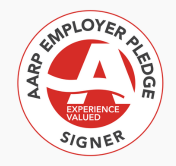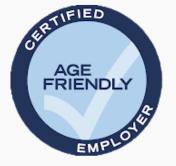(Note: This blog series is adapted from an article written for the Quarterly Journal – Summer 2016 of the Life Planning Network, a membership organization of professionals dedicated to helping people navigate the second half of life.)
Baby Boomers are retiring in droves, contributing to a rapidly changing workforce and work environment. Many “retirees”, however, envision a future that includes work . . . just not the traditional full-time role from which they are departing.
So what does the new work landscape look like? What options are out there for finding meaningful, flexible work? Equally important, how can you best position yourself to secure flexible work now and in the future?
Part I of this series discussed the changing work landscape and how flexible work options are evolving. Today, I will show you what type of employers are open to flexible work and how to target them in your job search. You will also learn how to express your career goals to potential employers and convince them that you have the eagerness, energy and openness to embrace a new kind of work.
Targeting Employers Open to Flexible Work
Despite the trends, not all companies are going to be open to flexible work arrangements. You will need to strategically target companies that are most likely to offer such arrangements. This will involve work on your part and a general understanding of the types of companies and organizations that embrace flexibility.
Companies that have formally embraced a corporate culture of flexibility are probably the easiest to find because they will promote this as part of their external branding. Descriptions of their flexwork benefits and policies will appear on the “Careers” page of their website. They will tend to be mid- to large-sized companies that are more established and have the resources to develop a formal work flexibility policy and related processes and systems. One option is to target these types of companies.
On the other end of the spectrum are small, growing businesses. If I were to put my money on the best kind of businesses for second career professionals to target for flexible work, it would be here.
In a nutshell, small businesses have a financial incentive to hire a seasoned professional into a flexible work arrangement. By doing so, they are able to bring on a higher level of talent — talent they could not afford if they were competing for it in the traditional employment market. Flexibility aside, a skilled professional will accept a job at a larger company that can afford to pay a higher salary. With flexibility a priority, the same professional will opt to work for the small business that may pay less but is willing to offer reduced hours, work-from-home options, or a flexible schedule. We have worked with hundreds of small businesses who have embraced the flexible work model. See our Success Stories for some inspiration.
Small businesses have very limited budgets for recruiting, so it takes some legwork to find them. Their names are not etched into the sides of office buildings or seen in business journal ads, but small business owners live in your neighborhoods, attend your churches, and volunteer in your communities. So, start networking in your community! Click here for some networking resources and tips. It is the small businesses owner that is often the decision maker when it comes to hiring. This is because small businesses often function without a formal human resources (HR) department. While HR professionals are all too often trained to weed out resumes and workers who may be overqualified, the business owner with budget authority and a desire for top talent will be enticed by the skills and experience a seasoned professional brings to the table.
Be Clear on Career Goals
Once you have identified potential employers, you need to effectively convince them of the value you bring to the company. Age discrimination, unfortunately, exists, but there are strategies you can employ to beat the (often younger) competition.
While your goal may be to find flexible work, no employer is going to hire you just because you desire flexibility. Remember to hook a prospective employer with your talent first and then to negotiate for the flexibility.
Seasoned professionals have the privilege and burden of having specialized skillsets and deep experience to offer an employer. When communicating your value, remember to focus not on all the skills you have but on those skills about which you are most passionate and wish to use in the future.
Recently, I interviewed a semi-retired operations professional with 30+ years at a top-10 banking institution. His resume screamed risk management and compliance, and our initial conversation centered on this. As it turns out, he has no interest in doing this anymore. His passion and future work goals are in the areas of team building, executive coaching, and developing organizations. When he spoke about his work in these areas, he shined — and provided a clear takeaway: Start the conversation with your sweet spot and re-work your resume to reflect the work you love.
Maybe you want to transition to something totally new. Or perhaps you have no desire to have the level of responsibility that you once had and that is reflected in your job titles. It is important to communicate these desires up front — with honesty, confidence and evidence of having “thought it through.” For some tips on how to approach this, see the FlexProfessionals’ article How to Respond to Difficult Questions/Concerns Raised in Interviews.
We have found that job seekers are most effective when they address the concern about being overqualified for a job head-on, before the question is even raised by the prospective employer. Doing so goes a long way to alleviate the employer’s concerns that the person will become bored and lack commitment to the job. In these situations, especially, the employer is looking for the prospective employee to express an eagerness, energy, youthfulness, and openness to new things!
Now that you know which employers to target for flexible work and how to communicate your value, Part III of our series will highlight strategies to best position yourself for flexible work.
Sheila Murphy is Co-Founder/Partner of FlexProfessionals, LLC, a niche staffing agency that matches professionals seeking meaningful, flexible work with growing businesses looking for top talent.









